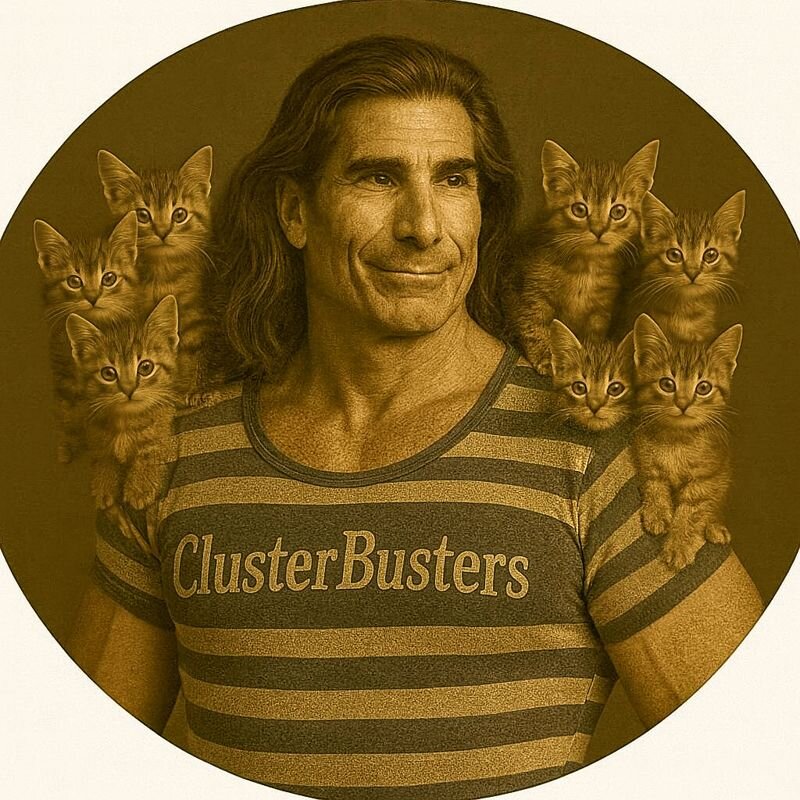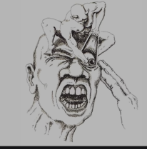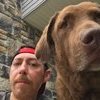-
Posts
6,875 -
Joined
-
Last visited
-
Days Won
495
CHfather last won the day on January 6
CHfather had the most liked content!
CHfather's Achievements
-
One thing that many people have noticed is that when the tank gets below a certain level (half-full for some, one-third full for others), O2 loses effectiveness. With a regulator that goes above your usual level, you can increase the lpm to compensate for this. You didn't answer about D3 and busting (perfectly fine), but I'll just repeat that they make a big difference.
-
@Trent, I remember from some years back that you gave a lot of thought to optimizing your O2 usage, and you were dealing with some Canadian restrictions on equipment. An average attack duration of 44 minutes seems too long, and a total O2 usage of 45 minutes over 16 attacks seems quite low, so I'm curious about what's going on, and of course I am also curious about whether you are doing the D3 regimen or busting, both of which typically reduce attack durations. Since this isn't really the subject of these posts and you aren't asking for any advice, you don't have any obligation at all to answer . . . It just makes me curious about whether there's something that could reduce those longer attacks.
-
80/day is very unlikely to benefit you, and I wouldn't hope for much from 160/day, either. (240/day is pretty much the most standard starting dose, increased over time as needed.) It seems that immediate release works better than extended release. Also, it takes time for verap to get into your system and help at all. Could be that your doc is starting with extreme caution for some good reason, of course. Often, a course of prednisone is recommended to at least hold off the pain while the verap is settling in. But, really, the D3 regimen is a better preventive for most people than verap, with a lot fewer potential side effects. (see attached) What else are you using for your CH now? You might want to look at this: Basic non-busting information - ClusterBuster Files - ClusterBusters. Also, I have attached an older summary of CH treatment options. It's old enough that it doesn't mention the newer CGRP drugs, but I think what's there is still mostly valid enough as a point of reference. Quick Start Guide - Sept 2023.pdf GoadsbyCluster.pdf
-
.thumb.jpg.24dde7ef3152d6d31b9546e3fec3b26d.jpg)
Why is the D3 Regimen not common knowledge after all this time?
CHfather replied to Bilal's topic in General Board
What a great post. Thank you. I'm looking forward to perhaps a follow-up from @Craigo This seems possibly valid to me. I'm just wondering how you reached the conclusion, and why "undiagnosed." In Rozen's big 2011 study of people with CH, he asked about other medical conditions that people with CH have, but it doesn't seem that ADHD was among the possible answers. Someone at ClusterBusters might know whether another big study is planned (there was another one, after Rozen's, by Larry Schor), since CB is a source for research subjects. It seems like this is a question that might be asked (at least about diagnosed ADHD). Also, regarding dopamine, I admit to not having studied the two reports I posted in the research/scientific news section below, but I guess I could imagine that increased dopamine production accounts in part for the effect of D3 on mood. -
Two studies (bold and italics are added by me) 2024: The effect of vitamin D supplementation on depression: a systematic review and dose–response meta-analysis of randomized controlled trials | Psychological Medicine | Cambridge Core The impact of vitamin D supplementation on depressive symptoms remains uncertain. This study aimed to investigate the dose-dependent effects of vitamin D supplementation on depressive and anxiety symptoms in adults. We systematically searched PubMed, Scopus, and Web of Science up to December 2022 to identify randomized controlled trials evaluating the effects of vitamin D3 supplementation on depression and anxiety symptoms in adults. Using a random-effects model, we calculated the standardized mean difference (SMD) for each 1000 IU/day vitamin D3 supplementation. The GRADE tool assessed the certainty of evidence. Our analysis included 31 trials with 24189 participants. Each 1000 IU/day vitamin D3 supplementation slightly reduced depressive symptoms in individuals with and without depression (SMD: −0.32, 95% CI −0.43 to −0.22; GEADE = moderate). The effect was more pronounced in those with depressive symptoms (SMD: −0.57, 95% CI −0.69 to −0.44; n = 15). The greatest reduction occurred at 8000 IU/day (SMD: −2.04, 95% CI −3.77 to −0.31). Trials with follow-up ⩽8 weeks (SMD: −0.45, 95% CI −0.70 to −0.20; n = 8) and 8 to ⩽24 weeks (SMD: −0.47, 95% CI −0.70 to −0.24; n = 15) showed stronger effects compared to those lasting 24 to ⩽52 weeks (SMD: −0.13, 95% CI −0.28 to 0.02; n = 5) or longer than 52 weeks (SMD: 0.14, 95% CI −0.16 to 0.44; n = 3) (p group difference <0.001). Vitamin D3 supplementation had no significant effects on anxiety symptoms. In summary, this study suggests that vitamin D3 supplementation may effectively reduce depressive symptoms in short term. Further high-quality trials are warranted for a conclusive assessment of its impact on anxiety. 2025: https://www.frontiersin.org/journals/psychiatry/articles/10.3389/fpsyt.2025.1622796/full Our findings indicate that vitamin D supplementation is associated with a moderate but statistically significant improvement in depressive symptoms..... This meta-analysis demonstrates that vitamin D supplementation significantly alleviates depressive symptoms (SMD = -0.36), particularly in subgroups with baseline deficiency (<20 ng/mL) and comorbid chronic inflammatory conditions.
-
He might be more likely to see this if we include his handle here, @xxx.
-
I am getting better at turning to AI for questions like this. I asked ChatGPT (which probably isn't even the best AI engine for this kind of thing): "What does this mean: In the forward MR analysis, 11 CSF metabolites were significantly associated with CH risk (P<0.05). The strongest associations were observed for orotate (β = 0.53, 95% CI: 0.23–0.82, P = 0.0006), betaine (β = 0.47, 95% CI: 0.16–0.79, P = 0.0035), and 5-oxoproline (β = 0.57, 95% CI: 0.17–0.97, P = 0.0053). In the reverse MR analysis, eight metabolites, including lysine (β = 0.015, P = 0.029) and kynurenine (β = 0.025, P = 0.020), were nominally associated with genetic liability to CH. Sensitivity analyses showed no evidence of directional pleiotropy or heterogeneity (all P > 0.05). This bidirectional MR study provides the first genetic evidence linking central metabolic alterations to CH susceptibility. While these results highlight potential metabolic biomarkers and mechanistic pathways, the findings remain preliminary due to modest statistical power and should be replicated in larger and ethnically diverse cohorts." In the blink of an eye, the answer that came was (formatting is much clearer in the Chat version; I have just pasted it here as plain text). NOTE that at the end it offers to go deeper: Maybe some of your other questions could be asked there. Well, I tried pasting it. I get an error message that says, The value entered includes a character that is not allowed such as an Emoji. Since I have no idea what that character might be, I guess you'll have to do the exercise yourself. I don't think you will be disappointed.
-
@Ange72, it might be worth trying oxygen, because sometimes it works or at least helps, but as I'm sure you know, that's rare with hemicranias. Similarly, triptans rarely work, but they could be worth trying. We've had some people here with hemicranias mention getting some relief from oxygen and/or triptan injections. Busting sometimes provides some temporary relief (a day or maybe two). Your experience with indo side effects is sadly typical. Other possible treatments for PH that are typically listed are other NSAIDs (aspirin, naproxen and diclofenac); COX-2 inhibitors (celecoxib and rofecoxib); and calcium channel blockers (verapamil and flunarizine). I have read lately that vagus nerve stimulation is helping with hemocranias: one such device is the GammaCore. But really hoping the keto, and D regimen, will make a difference for you. You mention in your post that the headaches are "constant." Did you mean that you have some kind of background pain all day, with eruptions of greater pain, or did you just mean by "constant" that you have many of them every day? (I realize that I might sound here like I might be a doctor or some kind of expert. I'm just reporting what I've seen here and read.)
-
The whole article can be read here. It's darn fascinating, although the authors are clear that practical applications are likely pretty far off. Advancements-in-Intranasal-Delivery-of-Drugs-for-Cluster-Headache-Treatment-using-Cubosome-Based-Nanocarriers-A-Review.pdf There are a lot more articles about the same technology but different, non-CH, applications here: Advancements in Intranasal Delivery of Drugs for... - Google Scholar Seems to be very much an India-based thing, judging by the various authors of the papers.
-
That seems right. As I say, this is just what I remember. Looking back, I see this post from a well-informed member in 2015: "People taking verapamil (calcium channel blocker), for instance, do not necessarily need to take calcium supplements as they do not play well together. If you do take both, then you need to take them far enough apart daily so that they do not interfere with each other." Maybe @Craigo can comment.
-
There was a time when Batch suggested that people should take the calcium in the D3 regimen as far apart as possible from any calcium channel blocker meds. I haven't seen that lately in his guidance. (I think it's also true that in the early days there was a separate calcium pill that was part of the regimen, but now it's just what's included in the multivitamin, I think.)
-
One kitty is for wusses.
-
This post might be helpful as you consider welding O2. Notes about welding O2 - ClusterBuster Files - ClusterBusters
-
I would think that it's nearly impossible to have a highly effective breathing strategy (full exhale/deep inhale) at 8 lpm. That would be because the bag on your mask doesn't fill fast enough to be full when you are ready to inhale. So it's great that that's working well now, but I think you would be able to make it a quicker abort, and maybe a longer-lasting one, with a breathing process that is supported by a higher flow rate. And I do think a strong cup of coffee will often be as effective as an energy shot or energy drink, particularly if you're not doing much caffeine at other times of the day.
-
For an overall guide, you might look here: Basic non-busting information - ClusterBuster Files - ClusterBusters. At the end of that file is the same concise description of busting that appears under the button "New Users -- Please Read Here First" near the top of each page. ("Busting" -- using psychedelic substances to treat CH -- is the reason this site was created, but we cover everything you might need to know if busting doesn't appeal to you.) This is most definitely NOT how your life will be!! CH is manageable. Craigo has told you many of the ways (all discussed at the above link). Your overuse of the rizatriptan is understandable, but it is also almost certainly worsening your attacks and extending your cycle. OXYGEN is a necessity. (And rizatriptan is probably fifth or sixth among triptans in effectiveness for CH. I'm gonna say that by throwing meds at it and (as far as we can see from what you've said) not prescribing what works best, your doctor probably isn't great. A headache center is best if you can get to one (but many people here only see doctors now for filling the prescriptions they know they need, such as oxygen, and getting tests for the D3 regimen). Did you get relief at the ER? If so, what were you given there? A lot of people worry that they have become chronic. It's at least 90% likely that you have not. You are going to be okay. You might get the kind of fabulous preventive effects that Craigo and others (even people with chronic CH) have gotten, so that you are actually pain-free for long periods -- years, even -- but even if you aren't that successful, you will know how to manage your cycles and your attacks so they do not define your life.





.thumb.png.d237bb0dbb7bd8ac08da8f08a1ba65f8.png)


